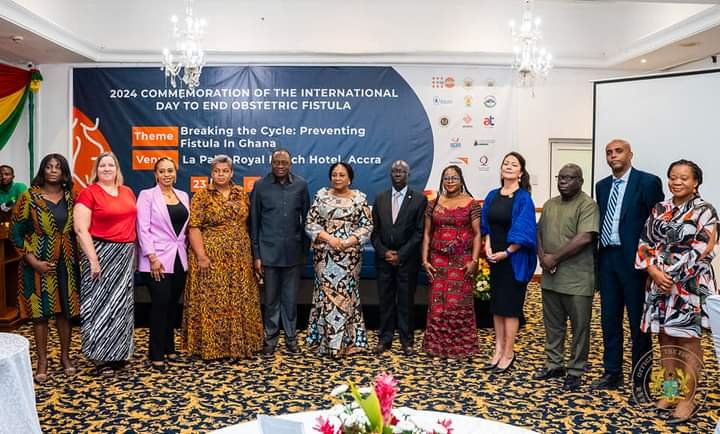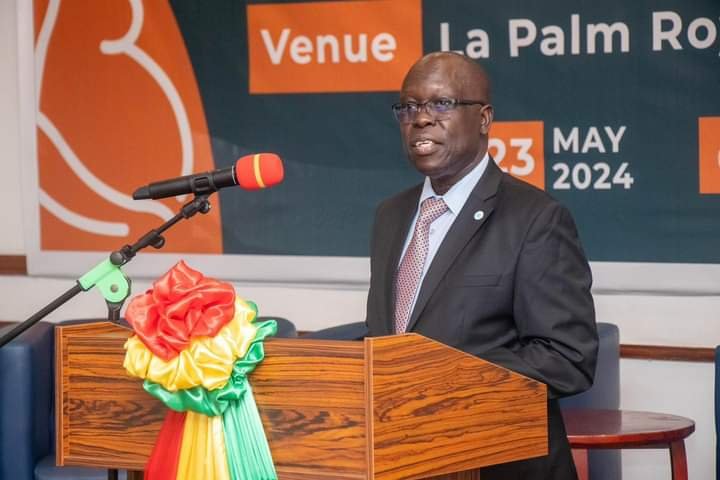
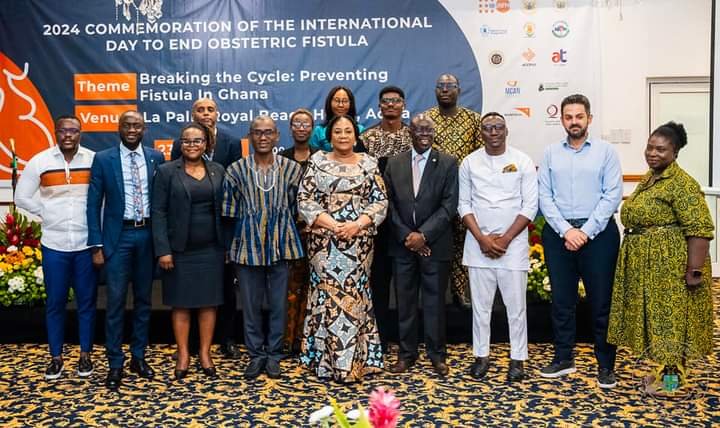 The Partnership to End Obstetric Fistula in Ghana (PEFIG) has successfully mobilized USD 405,000 to support efforts in eliminating obstetric to improve women’s health.
The Partnership to End Obstetric Fistula in Ghana (PEFIG) has successfully mobilized USD 405,000 to support efforts in eliminating obstetric to improve women’s health.
The Country Representative of United Nations Population Fund (UNFPA) Ghana, Dr. Wilfred Ochan, announced this during the commemoration of the 2024 International Day to End Obstetric Fistula (IDEOF) at La Palm Royal Beach Hotel, Accra, yesterday. It was under the theme “Breaking the cycle: Preventing Obstetric Fistula in Ghana.”
Obstetric fistula is a debilitating childbirth injury that unduly affects women in low-income settings, facilitating health inequalities and limiting women’s access to maternal healthcare.

Considerable progress
The UNFPA Country Rep indicated that Ghana had made considerable progress in efforts to eliminate the disease, and restore the dignity and womanhood of girls and women suffering from fistula since last year’s commemoration.
“The novel Partnership to End Obstetric Fistula in Ghana (PEFIG) was launched by Her Excellency, the First Lady of the Republic of Ghana, Mrs. Rebecca Akufo-Addo, on December 6, 2023. Since then, PEFIG has collectively mobilized and leveraged USD 405,000 to support obstetric fistula programming, including the reintegration of repaired clients,” he said.
Dr. Ochan mentioned that PEFIG’s membership had seen membership increase from seven to 13 organisations, including private sector banks and media entities, reflecting a robust coalition against this debilitating condition.
He said the number of obstetric fistula repairs had increased significantly, noting that out of the 50 repairs done last year, 38 were completed in the fourth quarter alone, around the mobilization and launch of PEFIG.
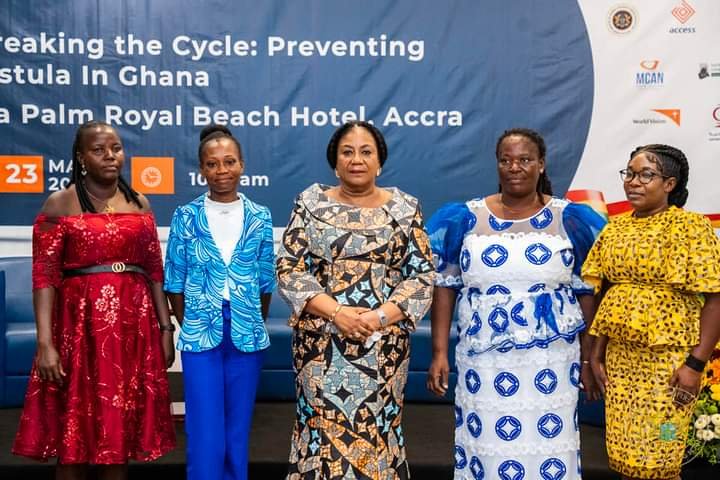 This, he noted, represents over a 200% increase in the usual annual repairs. He disclosed that there were ongoing efforts to expand the partnership to reach 20 organizations and further mobilize resources for fistula holding homes.
This, he noted, represents over a 200% increase in the usual annual repairs. He disclosed that there were ongoing efforts to expand the partnership to reach 20 organizations and further mobilize resources for fistula holding homes.
“We are in advanced discussions with partners such as the Qatar Charity Organisation, which is considering constructing fistula holding centres within selected hospitals as patient wards for pre- and post-repair care,” he stated.
Dr. Ochan stressed that: “The commemoration of the annual International Day to End Obstetric Fistula (IDEOF) is not just ‘another talk shop.’ Important actions are taking place to improve the health and well-being of fistula survivors.”
 Close gaps
Close gaps
He, however, lamented that approximately 1,300 new cases of obstetric fistula occur annually in Ghana. This alarming statistic, he said, underscored the urgent need for increased efforts and pragmatic steps to close gaps in the campaign to end this devastating condition.
He emphasised the importance of accelerating efforts towards integrated fistula programming and enhancing the quality of health care delivery. He reaffirmed UNFPA’s commitment to continuing to invest in eliminating fistula through various health system strengthening initiatives.
These include providing medical equipment to fistula centres, supporting case identification, advocating for fistula repairs as part of routine health care services, building the capacity of fistula surgeons, and supporting evidence-based research and the reintegration of clients.
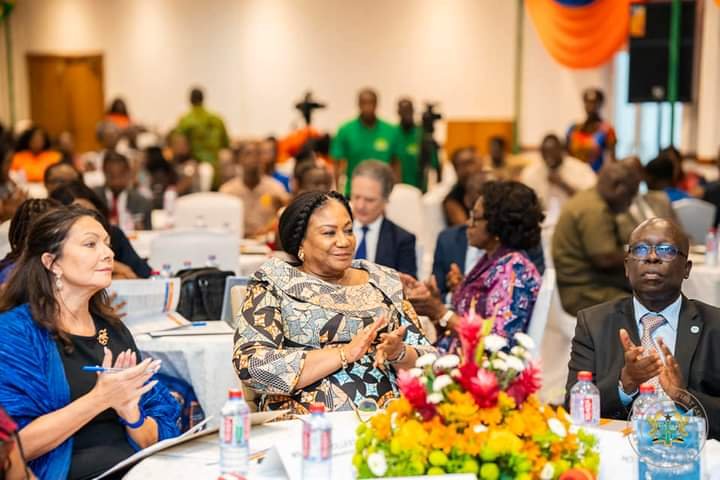 He mentioned that, last year, UNFPA’s contributions included donating beds to the Mankessim Fistula Center and facilitating the repair and reintegration of clients. “This year, UNFPA aims to increase the number of repairs to 200 cases by the end of the year. This goal, set during the launch of the PEFIG last year, also involves collaboration with the Ministry of Health, Ghana Health Service, and PEFIG members to support other health system building blocks like infrastructure, research, and medical equipment,” he said.
He mentioned that, last year, UNFPA’s contributions included donating beds to the Mankessim Fistula Center and facilitating the repair and reintegration of clients. “This year, UNFPA aims to increase the number of repairs to 200 cases by the end of the year. This goal, set during the launch of the PEFIG last year, also involves collaboration with the Ministry of Health, Ghana Health Service, and PEFIG members to support other health system building blocks like infrastructure, research, and medical equipment,” he said.
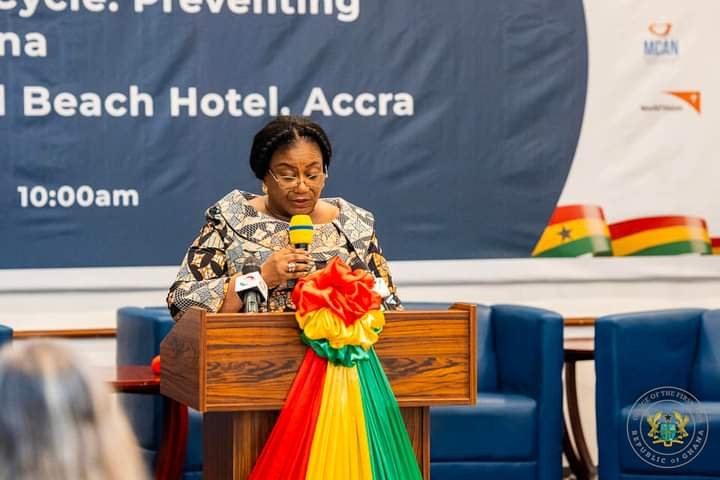
Healthcare barriers
For her part, the First Lady, Rebecca Akufo-Addo, emphasised the importance of addressing healthcare barriers to ensure women and their babies reach their full potential for health and well-being.
She reiterated the need for resilient health systems to tackle these challenges. “It is vital that we address the barriers to healthcare that our people, especially mothers, face. This is the justification for the call by WHO and the international health community for countries to develop resilient health systems,” she stated.
 She also acknowledged Ghana’s successes in developing efficient health systems for safe reproductive health outcomes, but highlighted that significant challenges remain.
She also acknowledged Ghana’s successes in developing efficient health systems for safe reproductive health outcomes, but highlighted that significant challenges remain.
“We still have a lot of challenges to address. By being here, we are all affirming our commitment to resolve challenges with fistula in Ghana,” she added. The First Lady lauded the Partnership to End Fistula in Ghana for its role in increasing the number of repairs from the usual 8 to 10 annually to 50 cases last year.
“This is indeed good news, but given the numbers we’re dealing with, we ought to do better. My office is already committed to 20 fistula repairs, and I urge other corporate organizations to join the partnership for increased impact,” she added.
